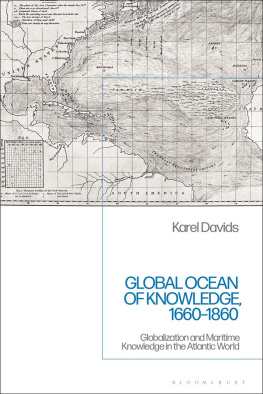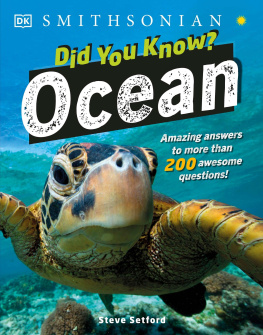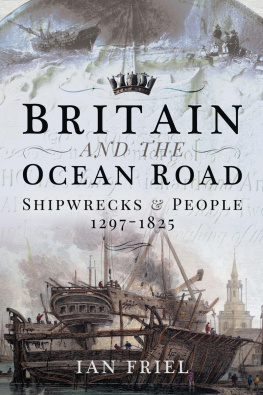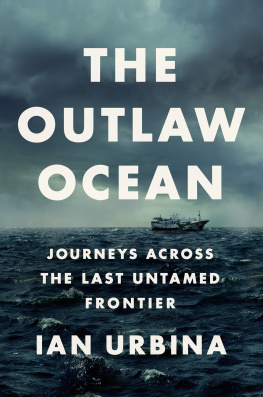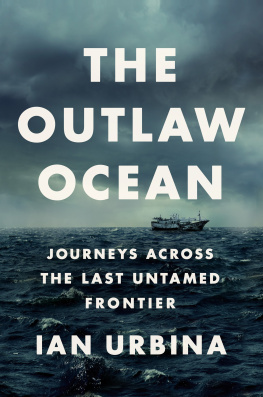Distributed in Canada by Douglas & McIntyre Ltd.
The Library of Congress has cataloged the hardcover edition as follows: Langewiesche, William.
p. cm.
ISBN 0-86547-581-4 (hardcover : alk. paper)
1. Shipping. 2. Merchant marine. 3. Terrorism. 4. ShipsNationality. 5. Law of the sea. 6. Seafaring life. I. Title.
Designed by Jonathan D. Lippincott
Maps designed by Jeffrey L. Ward
PRAISE FOR THE OUTLAW SEA
[Langewiesches] nail-biting description is more gripping than The Perfect Storm or Titanic.
Brad Knickerbocker, The Christian Science Monitor
Langewiesche has evolved into perhaps our leading forensic journalist, a voracious student of all that can go wrong. Like a literary-minded accident investigator, he digs for every shred of evidence, without worrying about whom his conclusions might offend.
Bill Gifford, The Washington Post Book World
An ambitious and lyrical evocation of the role the oceans play in an increasingly interconnected planet... Elegant.
New York Post (Required Reading)
In understated prose that highlights the dangers inherent in the freedom of the seas, Mr. Langewiesche points out the helplessness of American officials who believe that a large-scale maritime terrorist attack currently poses the most serious threat to their national security... Mr. Langewiesche is especially good on how the ocean, which looks tight in print, can descend into such chaos in practice.
The Economist
Punctuated with harrowing scenes of shipwrecks, oil spills and pirate attacks, The Outlaw Sea is impossible to put down.
Alex Abramovich, People
William Langewiesche is that rare magazine writer whose narrative journalism has a shelf life longer than a week or a month... A magisterial effort of reporting.
Philip Connors, Newsday
Langewiesches prose is always elegant and gripping for its restraint. But there is another pleasure in reading him: the pleasure of witnessing someone quicker and deeper than you tackle a subject worthy of him... Were lucky to have Langewiesches The Outlaw Sea as our map.
Marta Salij, Detroit Free Press
Eye-opening... [Langewiesche] is a master at explaining complex technological subjects for a general audience... With a simple and unadorned prose that is elegant in its clarity, Langewiesche... lets his astonishing facts tell the story.
Henry Kisor, Chicago Sun-Times
An unsettling and hard-hitting account.
Rob Mitchell, Boston Sunday Herald
Extremely detailed and highly readable... An important tale, informatively told.
Mike Vogel, The Buffalo News
The stories of corporate malfeasance [Langewiesche] uncovers are as disturbing as anything in Fast Food Nation.
Andrew Johnston, Time Out New York
Required reading... [Langewiesche] has become one of this countrys leading investigative reporters.
Tony Gibbs, Islands magazine
The Outlaw Sea points out the seas great influence on our lives, something that is often forgotten, ignored or taken for granted... Langewiesche presents an excellent overall picture of the many problems affecting the worlds shipping, for which practical solutions have so far been elusive.
Norman N. Brown, Associated Press

Sam Parsons
WILLIAM LANGEWIESCHE
THE OUTLAW SEA
WILLIAM LANGEWIESCHE is the author of four previous books, Cutting for Sign, Sahara Unveiled, Inside the Sky, and American Ground. He is a national correspondent for The Atlantic Monthly, where this book originated.
Also by William Langewiesche
Cutting for Sign
Sahara Unveiled
Inside the Sky
American Ground
To sailors at sea
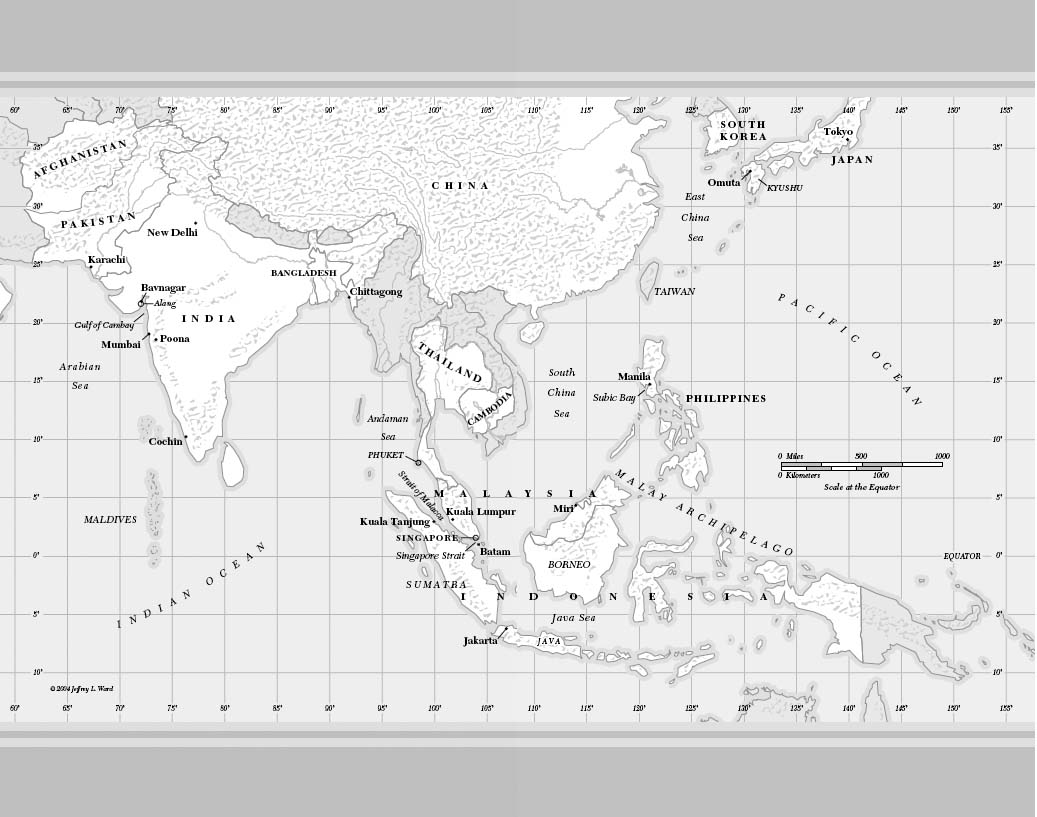
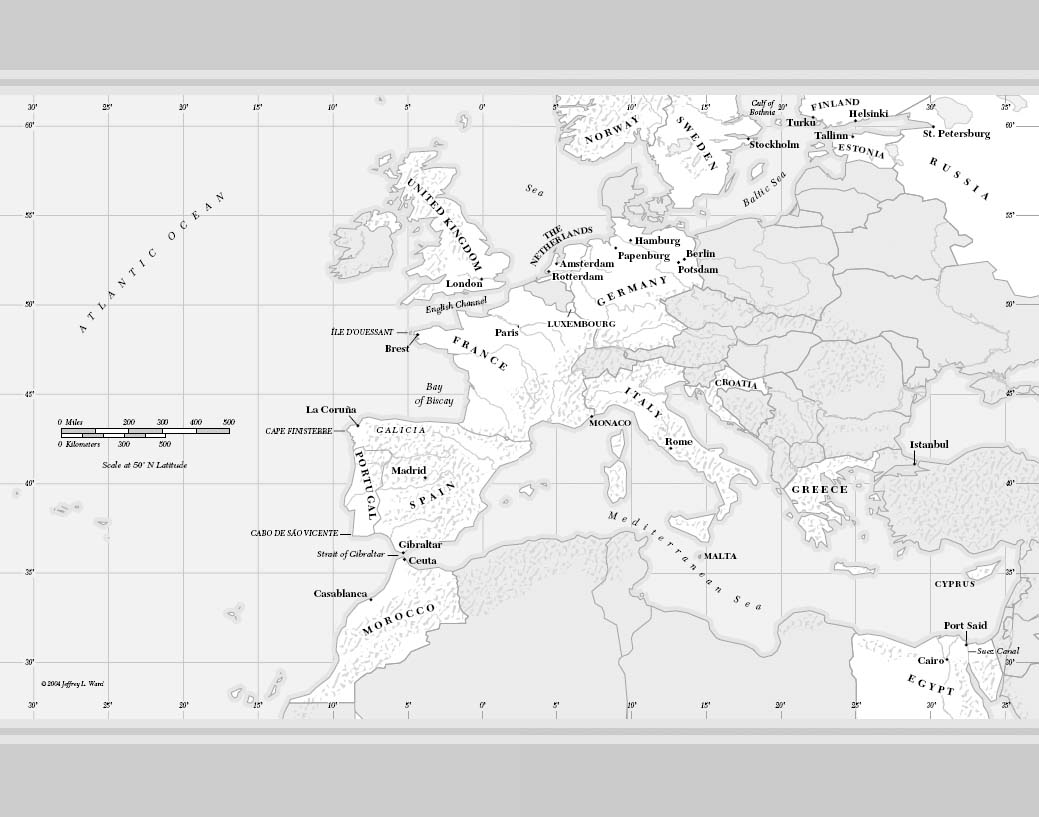
One
AN OCEAN WORLD
Since we live on land, and are usually beyond sight of the sea, it is easy to forget that our world is an ocean world, and to ignore what in practice that means. Some shores have been tamed, however temporarily, but beyond the horizon lies a place that refuses to submit. It is the wave maker, an anarchic expanse, the open ocean of the high seas. Under its many names, and with variations in color and mood, this single ocean spreads across three-fourths of the globe. Geographically, it is not the exception to our planet, but by far its greatest defining feature. By political and social measures it is important toonot merely as a wilderness that has always existed or as a reminder of the world as it was before, but also quite possibly as a harbinger of a larger chaos to come. That is neither a lament nor a cheap forecast of doom, but more simply an observation of modern life in a place that is rarely seen. At a time when every last patch of land is claimed by one government or another, and when citizenship is treated as an absolute condition of human existence, the ocean is a realm that remains radically free.
Expressing that freedom are more than forty thousand large merchant ships that wander the world with little or no regulation, plying the open ocean among uncountable numbers of smaller coastal craft and carrying nearly the full weight of international tradealmost all the raw materials and finished products on which our land lives are built. The ships are steel behemoths, slow and enormously efficient, and magnificent if only for their mass and functionality. They are crewed from pools of the poorseveral million sailors of varying quality, largely now from southern Asia, who bid down for the jobs in a global market and are mixed together without reference to such petty conventions as language and nationality. The sailors do not enjoy the benefit of long stays in exotic ports, as sailors did until recently, but rather they live afloat for twelve months at a stretch, enduring a maritime limbo in the ships fluorescent-lit quarters, making brief stops to load and unload, and rarely going ashore. They are employed by independent Third World manning agents, who in turn are paid for the labor they provide by furtive offshore management companies that in many cases work for even more elusive ownerspeople whose identities are hidden behind the legal structures of corporations so ghostly and unencumbered that they exist only on paper, or maybe as a brass plate on some faraway foreign door. The purpose of such arrangements is not to make philosophical points about the rule of law, but to limit responsibility, maximize profits, and allow for total freedom of action in a highly competitive world. The ships themselves are expressions of this system as it has evolved. They are possibly the most independent objects on earth, many of them without allegiances of any kind, frequently changing their identity and assuming whatever nationalityor flagallows them to proceed as they please.


